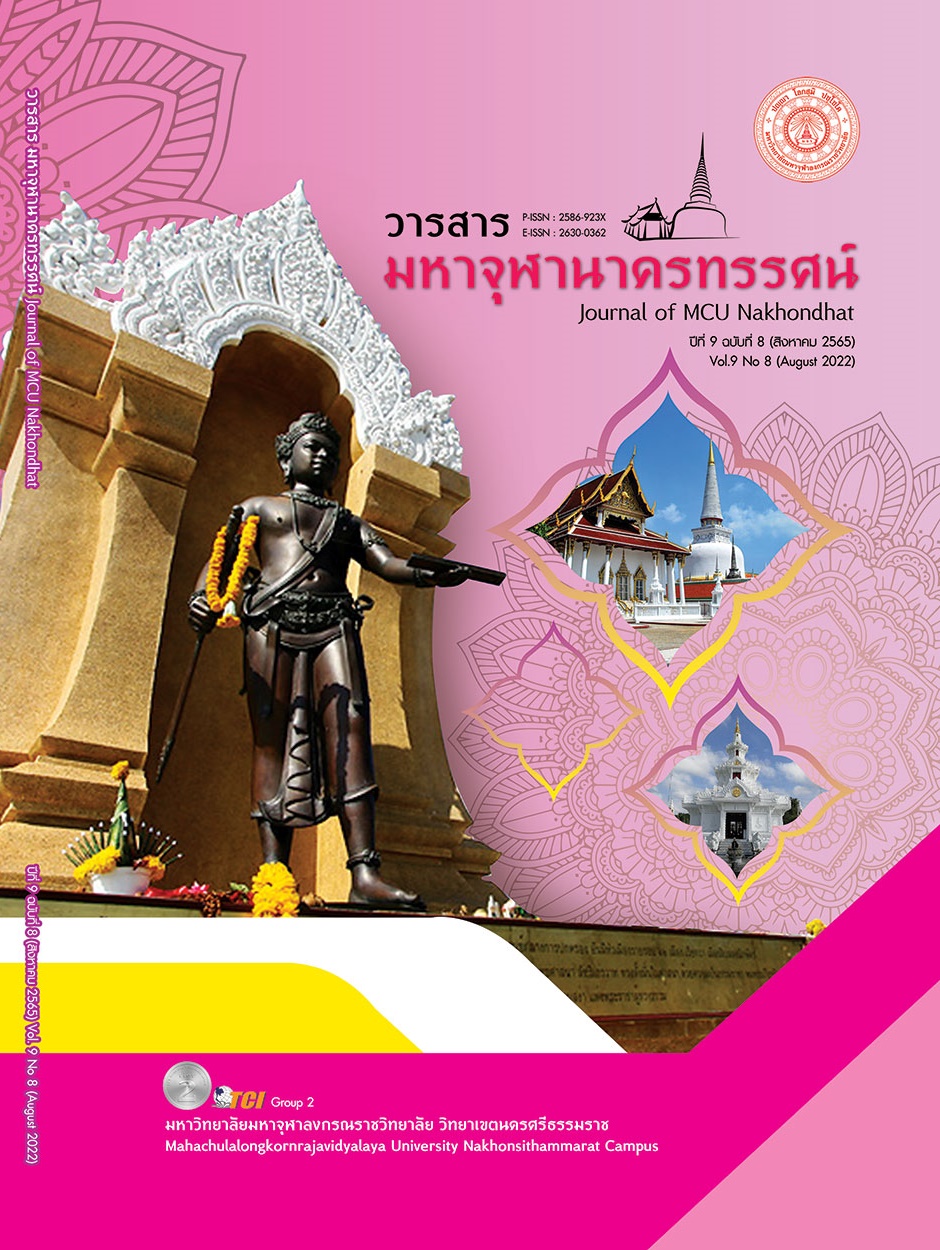THE POTENTIAL ANALYSIS OF ELDERLY MENTAL HEALTH CARE IN BANDOO SUB-DISTRICT, MUANG DISTRICT, CHIANG RAI
Main Article Content
Abstract
Objectives of this study were to analyze the potential of elderly mental health care in Bandoo sub-district, Muang district, Chiang Rai. Samples were 3 groups: 1) Executive and subdivision chief of Bandoo sub-district municipality and 2) Community leaders and 3) Elderly in Bandoo sub-district, sixty-two totally. They were selected by purposive sampling. The data were collected by structured Interviews and focus group. Then, the data were content analysis. The results showed the potential of elderly mental health care in Bandoo sub-district, Muang district, Chiang Rai as follow: 1) Personal capability also maintains a way of wisdom through tradition and spiritual therapy to promote mental health and there are groups to do activities in the community to promote physical and mental health. 2) Physical environments are beautiful resources naturally in the area which can be recreational area and organize activities. 3) The existence of cultural traditions affects the beliefs and faiths that have been practiced for generations. Therefore, it is as a community relationship which considered as mental health support. 4) Community network and 5) Local government policy focus on the participation of all parties as a cooperation network in the community to form a variety of activities in accordance with the community socio – cultural context and elderly needs including the community, local school, temple, sub-district municipality and the sub-district health promotion hospital. All these potentials are important for the elderly in the community to support healthy mental based on self-reliant by using the community's potential for sustainable community.
Article Details

This work is licensed under a Creative Commons Attribution-NonCommercial-NoDerivatives 4.0 International License.
References
กระทรวงการพัฒนาสังคมและความมั่นคงของมนุษย์ กรมกิจการผู้สูงอายุ. (2564). ผู้สูงอายุกับเรื่องสุขภาพจิต. เรียกใช้เมื่อ 15 มิถุนายน 2565 จาก http://www.vichaiyut .com/th/health/diseases-treatment/otherdiseases/mental-health-elder.
กระทรวงการพัฒนาสังคมและความมั่นคงของมนุษย์ กรมกิจการผู้สูงอายุ. (2565). สถิติผู้สูงอายุ. เรียกใช้เมื่อ 20 กรกฎาคม 2565 จาก https://www.dop.go.th /th/know/side/1/1/1159
กระทรวงสาธารณสุข กรมสุขภาพจิต. (2558). แนวทางการดูแลทางด้านสังคมจิตใจของผู้สูงอายุ เพื่อป้องกันปัญหาสุขภาพจิต. (พิมพ์ครั้งที่ 4). นนทบุรี : ชุมชนสหกรณ์การเกษตรแห่งประเทศไทย จำกัด.
ยุทธศาสตร์ชาติ (พ.ศ. 2561 – พ.ศ. 2580). (2561). ราชกิจจานุเบกษา เล่มที่ 135 ตอนที่ 82 ก หน้า 9 ( 13 ตุลาคม 2561).
พรชัย ตระกูลวรานนท. (2554). ทุนทางสังคมกับการพัฒนากระบวนการทางสังคมเพื่อรองรับสังคมผู้สูงวัย. เรียกใช้เมื่อ 13 มิถุนายน 2565 จาก https://socanth.tu.ac.th/wp-content/uploads/2014/06/pornchai-2557.
รณรงค์ จันใด. (2561). แนวทางการพัฒนาระบบการส่งเสริมสุขภาพผู้สูงอายุแบบองค์รวมในเขตเทศบาลนครนนทบุรี. วารสารสถาบันพระปกเกล้า ปีที่ 16(1), 96-110
รัฐธรรมนูญแห่งราชอาณาจักรไทย. (2560). ราชกิจจานุเบกษา เล่มที่ 134 ตอนที่ 40 ก หน้า 18 ( 6 เมษายน 2560).
รุสนี มามะ, ณิศรา ชัยวงค์, ศิวพงษ์ ตันสุวรรณวงค์ และสุวนันท์ แก้วจันทา. (2564). การศึกษาปัญหาและความต้องการดูแลสุขภาพด้วยการแพทย์แผนไทยของผู้สูงอายุ เทศบาลตำบลบ้านดู่ อำเภอเมือง จังหวัดเชียงราย. วารสาร มจร สังคมศาสตร์ปริทรรศน. 10 (1), 222-231.
ศิริพักตร์ จันทร์สังสา, ศิวพงษ์ ตันสุวรรณวงค์ และยิ่งยง เทาประเสริฐ. (2563). การศึกษาความเชื่อเกี่ยวกับอาการเลือดลมแปรปรวนของผู้สูงอายุ. ใน รายงานสืบเนื่องจากการประชุมวิชาการและนำเสนอผลงานวิจัยบัณฑิตศึกษาระดับชาติ มหาวิทยาลัยราชภัฏร้อยเอ็ด ครั้งที่ 2 “นวัตกรรมสร้างสรรค์ ศาสตร์พระราชาสู่การพัฒนาที่ยั่งยืน” มหาวิทยาลัยราชภัฏร้อยเอ็ด, 283-288.
สมบัติ ริยาพันธ์, นิยดา ภู่อนุสาสน์ และญาดา ประคองยศ. (2563). การพัฒนาศักยภาพแกนนำชุมชนในการส่งเสริมสุขภาพจิตผู้สูงอายุเขตบางซื่อ กรุงเทพมหานคร. วชิรเวชสารและวารสารเวชศาสตร์เขตเมือง. 65(2), 143-152.
สำนักงานคณะกรรมการสุขภาพแห่งชาติ. (2552). ธรรมนูญว่าด้วยระบบสุขภาพแหงชาติ พ.ศ. 2552. นนทบุรี: บริษัท วิกิ จำกัด.


